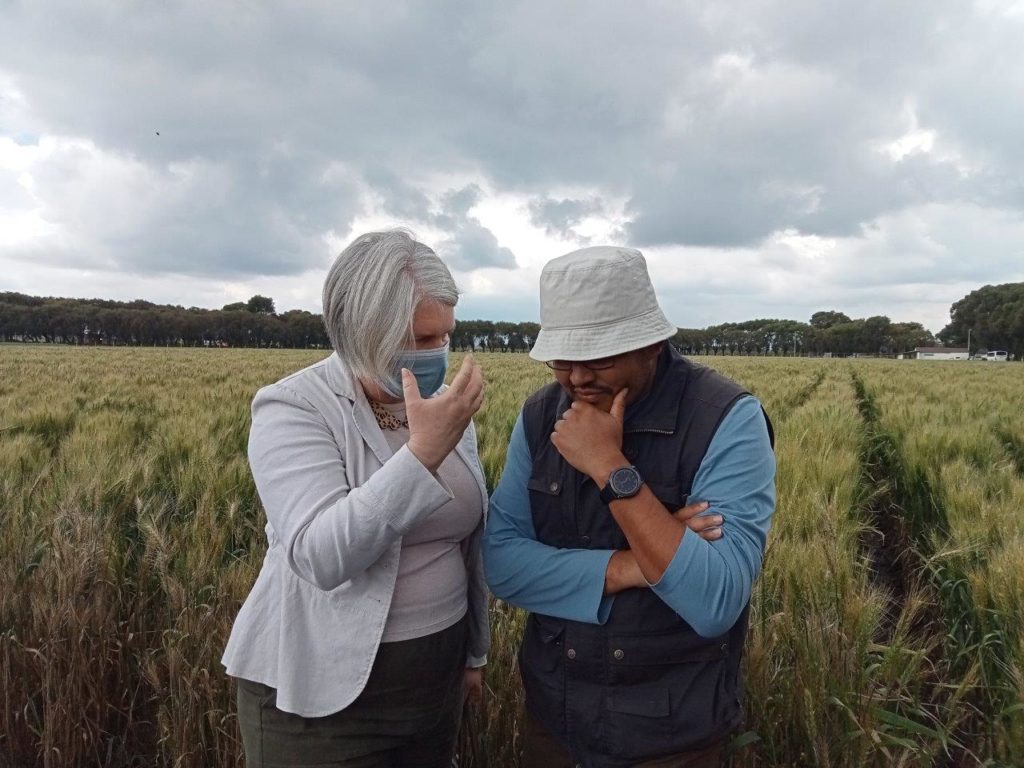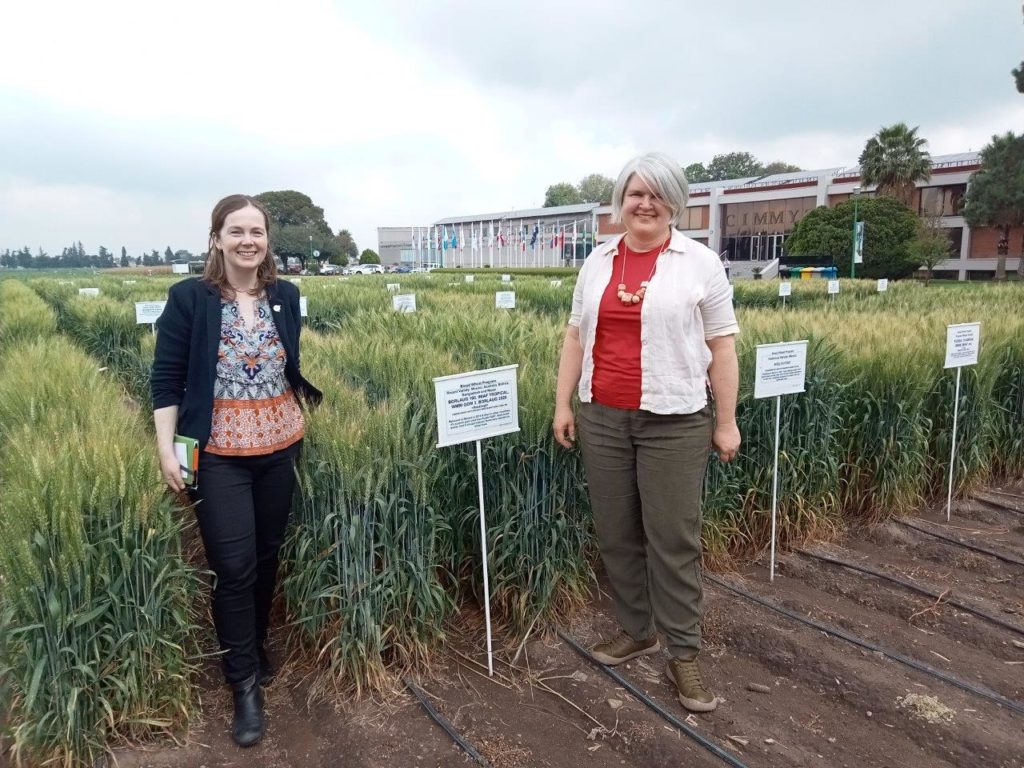Sonja Vermeulen

Background
Working at CIMMYT, and within the Consortium of International Agricultural Research Centers (CGIAR) system, the importance of diverse role models in senior leadership plays an important role in ensuring diverse perspectives and views are represented, and in achieving diversity at all levels of the organization. Sonja Vermeulen is the Managing Director of Genetic Innovation in the CGIAR. In this role, she oversees a portfolio of science into application across gene banks, plant breeding and enabling technologies, market intelligence and seed systems. She also provides an example of inclusive and collaborative leadership.
Briefly describe what you do?
I am Managing Director for Genetic Innovation at CGIAR. This Science Group has over 2000 CGIAR professionals and a wide range of partners. Our work covers gene banks, crop breeding and seed systems. We also have teams working on critical capabilities to accelerate rates of genetic gain, and work with partners to reach impact at scale among millions of low-income farmers and consumers.
Why did you get into research, and crop science in particular?
Three main factors. One is insatiable curiosity, which I guess drives all scientists, along with a belief in the possibility of progress. Second a huge desire to play a part in social change – I was a child through Zimbabwe’s independence struggle, and then a teenager during the optimistic early days of independence in the 1980s. And third a deep love of the natural world, particularly botany, which led to a first degree in plant genetics and then later into ecology and systems science.
Rapid Fire Questions
Lab or field?
Field.
Conference or stakeholder meeting?
Stakeholder meeting.
Literature review or project report?
Literature review.
Conventional or molecular methods?
Both.
Hybrid, inbred or vegetative?
All three.
Qualitative or quantitative research?
Quantitative.
Genstat or R?
R.
Favorite crop & why?
Onion – the most vital of vegetables
What is your dream to achieve in your field of expertise?
Right now it is to get CGIAR’s talent and assets in genetic innovation to function as a unified germplasm operation with a global footprint. We have the strategy and roadmap, but have many steps ahead to make this dream a reality.
Who has influenced you most and why?
Sara Feresu, my head of department at the University of Zimbabwe and a pioneering woman in crop science. And Jan Kees Vis of Unilever – so serious and smart about using sustainability science to inform business practice.
Most important publication or the publication of which you are most proud?
The EAT-Lancet Report on healthy diets from sustainable food systems (https://eatforum.org/eat-lancet-commission/).
What is your favorite aspect of your research?
The science-policy interface – getting results from those often tricky conversations between the people who use science and those who generate it.
What is the best career decision you ever made and why?
A seven-year itch – never staying in a post for more than seven years – helps to keep me on a learning curve, contributing something fresh.
Beach or mountain?
Mountain.
Tea or coffee?
Both.
Appetizer or dessert?
Appetizer.
Instagram or Twitter?
Twitter.
Fame or fortune?
Fortune – in the sense of good luck rather than lots of money.
Final Word by Alison Bentley
It was fantastic for the CIMMYT wheat team to interact with Sonja during her recent visit to our headquarters in Mexico. Notably she took the time to talk to scientists one-to-one in both formal and informal settings in order to understand the importance of the work that we do and why. As a senior leader in the CGIAR this connection to reality and the day-to-day delivery of the work that underpins our global ambitions is hugely important. She also demonstrates a strong commitment to the change process, and to engaging and encouraging new scientific thinking targeted to achieving “big picture” objectives. Her interview responses are insightful: we can all learn from many aspects, including focus on progress and social change, value addition from working at the science-policy interface and listening to the 7-year itch. A slight curveball is her preference for onions (whilst overseeing a portfolio of genetic innovation across many of the world’s most important food crops) but I guess nobody is perfect!?!

